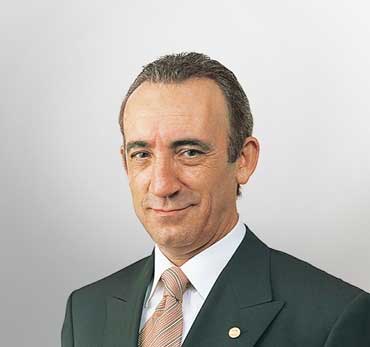
With over 450 factories across 84 countries, the 144-year-old Swiss company runs one of the largest operations of its kind. It boasts of several billionaire brands - that sell more $1 billion a year - and claims to touch over a billion consumers a day.
What drives the brand's growth and how does the company manages the complexities of business and operations, particularly in challenging times?
Jose Lopez, Nestle's Executive Vice-president for operations, who was in Delhi recently, spoke to Amit Ranjan Rai on these issues and the principles and practices that guide the company's success.
Nestle has continued to grow despite the recent challenging times. What has been the reason for the brand's growth?
The first thing that comes to mind is clearly the trust that we have been able to build in our consumers. Second, is our passion for quality, and third, simple and clear business processes.
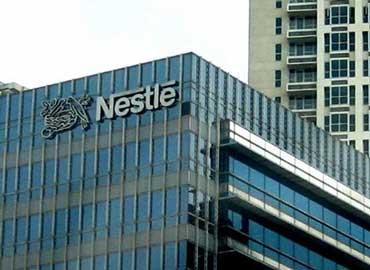
Nestle has a set of leadership and management principles, and also what we call Nestle's business principles. The entire organisation is aligned behind these. They are about our core values and allow us to deal with all kinds of cultures, geographies, consumers, their preferences and various other complexities.
The leadership and management principles have to do with the role of the Nestle employee in building the company of tomorrow. They are about the ethics that we follow in everything we do as well as our own behaviour and responsibility towards people. What makes someone's career in this company is his or her ability to follow these principles. Trust, I would say, is the key to what drives the brand.
And what drives growth...It started early on, not so long ago after the company came into existence in Switzerland in 1866. It became oriented towards becoming a multinational company because Switzerland was too small.
Our first factory in Australia came up in 1908 and operations in Malaysia started as early as 1912. It is this vision to dream big that we have acquired from the owners.

Today, we have factories in 84 countries. What it means is that we try to put our operations in place in most of places we are present. Some people who do not understand Nestle think we have operations in India to make products with low-cost labour to export and so on.
But that's not the way we operate. Our factories here use Indian raw materials produced by Indian farmers to make products that are made to Indian tastes and are sold in the country - that is the way we operate.
What it means is that wherever we start operations we immediately start creating shared value. As we grow, the community connected to us starts to grow - not only our business partners and employees, but also our suppliers, the farmers who supply us raw materials, our distributors and so on. It leads to a lot of development around our operations.
We are very committed to creating shared value in the places we operate.
You are saying that cost advantage is not a big factor in setting up operations in a country.
We don't put a factory in a country to take advantage of cost. We put a factory because there are people who will buy our products in that country, and also because we have access to raw materials. That is why we have factories in over 80 countries; had it been cost advantage, we would have had factories in just three or four countries.

Nestle calls itself a health, nutrition and wellness company. How do these values translate into growth for the company?
The idea behind why we call ourselves a health, nutrition and wellness company is the following. We want to add value to the raw material we use, and not just transform them into products. We want to transform raw materials into something that has nutritional characteristics, besides tasting good.
A number of them are quite rich in vitamin, proteins and so on. We want to provide the consumer a good diet. In addition to formulating such products, we want to teach them what's good for them. Every Nestle product has a nutritional panel or compass on the pack which helps in understanding its nutritional value.
The nutritional aspect of the products is what pleases the consumer, but it is also our responsibility to explain to him why it is good for him. The last thing we want is our consumers becoming victims of lifestyle-related diseases. We still have a lot of work to do on this front. But in this way, we build a relationship of trust with our consumers which helps the company to grow.
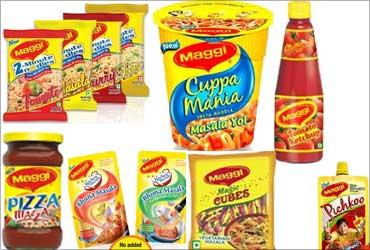
What you are saying is that nutrition enhances but it does not differentiate. What differentiates us though is the fact that we invest about 2 billion Swiss francs ($1.9 billion) a year in research and development.
We do numerous clinical trials to understand the science behind the interaction between food and metabolism. As I said, when we make a product, we tell the consumer what it is all about and the elements of good nutrition.
We have a core research centre in Switzerland with hundreds of doctors, PhDs and scientists that look into the core science behind the interaction between food and metabolism. We have a nutrition council that takes into account nutritional needs along with the global prices of commodities.
Then we have product technology centres that interpret all the understanding of science into a finished product which is appealing to the consumer, tastes good, benchmarks well from the point of view of cost, availability and so on. We already have close to about 50 such centres the world over, and we are opening new ones almost everyday.
We have products under our nutrition business like our infant foods that are designed to be perfectly balanced in terms of nutrition. We also have healthcare nutrition products that we have developed for patients with cancer, diabetes and digestion disorders.
We have a whole range of products which are medically developed with clinical and medical trials. Such extensive research & development then allows us to formulate our entire range appropriately.
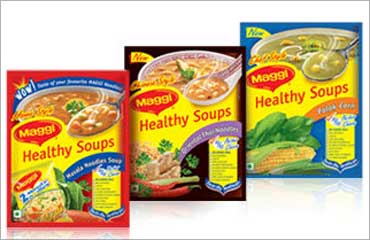
The functional food market is something a lot of companies are talking about. Does Nestle see it as a key growth area?
It is a growth area, but not a key growth area. We have businesses that are doing very well at Nestle. I don't know what exactly you mean by functional foods, but if you are referring to what we call nutraceticals which add nutrition through processes more close to pharmaceutical than food processes, we have those kind of products.
Though they are growing fast, they have a very small base. So they are not of primary importance. The most important thing with those kind of products is to learn, so that the learning can be translated to expand the value of our common products.
You have been heading the operations side of company for a long time. How does Nestle work on making operations more efficient?The basic idea is what we internally call the Nestle Continuous Excellence approach. Consumers want to pay for value, they don't pay for waste. We have a comprehensive programme that focuses on three things.
One, whatever we do, we have to delight the consumer. We have to deliver products that he is delighted to buy and use. It doesn't mean that the product has to be expensive or sophisticated. But the product should certainly be defectless, it should be perfect.
The Maggie instant noodles may be a very simple product, but it is perfect. It has the right ingredients, the quality is impeccable, the packing is done very well, and so when the consumer buys it he feels delighted.
The second one is our passion for compliance. Not only complying with the law, rules and regulations - that is obvious - but also complying with the best practices. We have a whole management system inside operations for that. We have our own high standards.
The third, of course, is that we have to be competitive. In other words, we have to run our operations at the highest level of efficiencies. And also with a passion to eradicate waste. Waste benefits nobody and consumers are not willing to pay the price to get waste.
These are the three Cs of the Nestle Continuous Excellence approach. We delight the consumer, we excel in compliance, and we deliver competitive advantage.
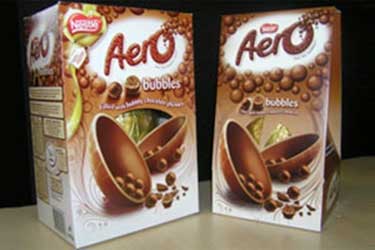
You have said creating shared value is core to Nestle's operations. What do you mean?
Creating shared value is a process, it is how Nestle does business, as simple as that. It's about creating economic value not only for your shareholders, but also the society at large.
If you create value only for your shareholder, clearly you don't have a long-term proposition. In India, we try to create value for close to 200,000 farmers - their income depends on whether we are successful or not.
It is all about engaging with the society at large. For instance, if you want to create value for the society, you have to behave from an environmental point of view. We are very demanding on ourselves. We have been able to reduce energy consumption significantly.
For instance, at Nestle India there has been a 33 per cent energy reduction in the last six years, and in the last 10 years, it's more than 60 per cent.
Globally, the reduction has been around 40 per cent in the last 10 years. Then we extract much less water than we used to. The reduction has been around 40 per cent in the last 10 years; the figure in India is over 60 per cent for the same period.
We are increasing the amount of investments that we devote to environmental sustainability.
Last year, we invested $250 million just on environmental sustainability -replacing equipment in refrigeration, changing the way we utilise cooling towers, treatment of the water through reverse osmosis to use some of that water for industrial purposes, using solar panels, using renewable energy, burning our own waste to create energy and so on.
This requires investments and we are quite determined that the rate of improvement doesn't slow down.
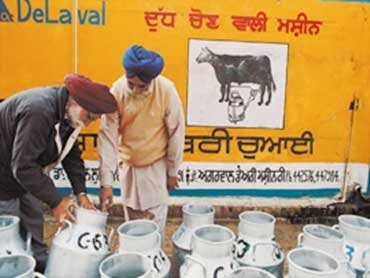
Any example of how you are creating shared value in India?
We have a factory in Moga in Punjab where we engage with about 100,000 farmers who supply milk and raw materials. We have agronomists who visit these farmers and support them in every other way.
We have been investing in setting up chilling centres to conserve milk where there are farmers as it not economically viable for them to bring milk from far off places. If the farms are big enough then we help farmers with producing biogas. We actually make a small reactor where they can create gas for cooking.
There are plenty of ideas. Then we also help them with improving the quality of yields, helping them in selecting the right seeds, with the scientific farm techniques, and in conserving the produce.